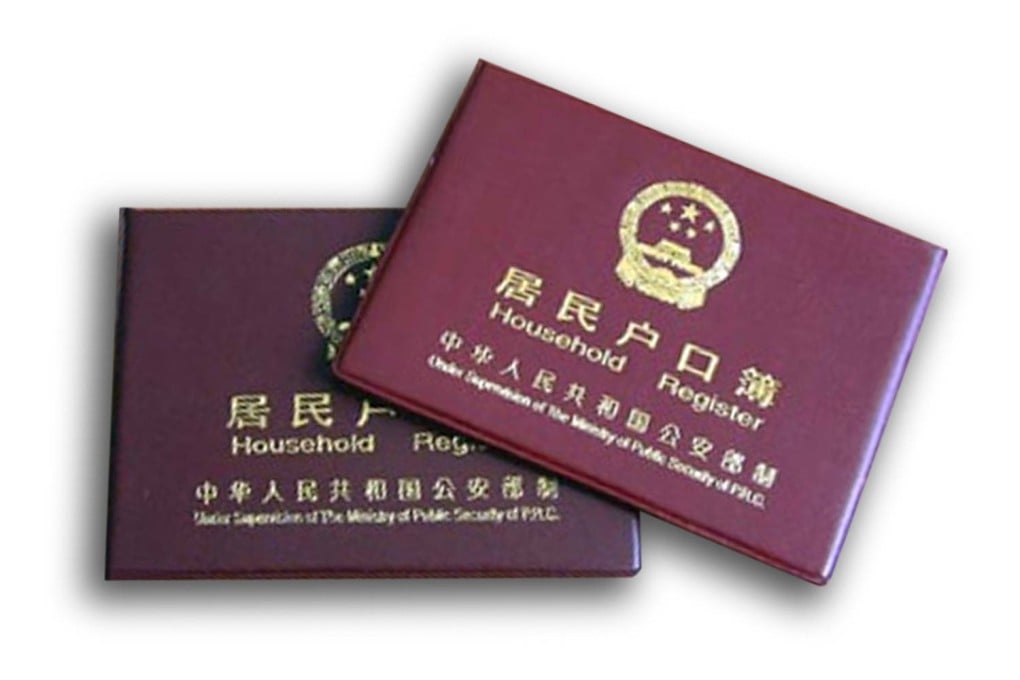China scraps urban-rural distinction in 'hukou' household registration system
Analysts say change to 'hukou' system unlikely to have immediate effect on social benefits

The decades-old distinction between urban and rural dwellers in the mainland's widely hated hukou, or household registration system, is to end, but observers doubt it will bring an immediate narrowing of the gap between city and countryside.
From now on, citizens will be classified simply as "residents" rather than as "agricultural" or "non-agricultural" workers.
But the social entitlements they receive will still be determined by where they are registered, and in rural areas these will remain far lower than in cities for years to come. Since its establishment in the 1950s, the system has kept farmers from enjoying the same social, economic and political rights as urban dwellers.
Around 100 million migrant workers are expected to have their hukou transferred to cities by 2020, according to an estimate by the Ministry of Public Security and National Bureau of Statistics.
However, while rural migrants will be encouraged to settle in smaller towns and cities, the biggest cities, where a local hukou guarantees the best social benefits, will impose more restrictions to curb population growth, a State Council document announcing the change said. Huang Ming, deputy public security minister, told a news conference yesterday: "Megacities like Beijing, Shanghai and Guangzhou have seen the number of migrants grow by 400,000 to 500,000 a year in the past decade. The pressure is too high."